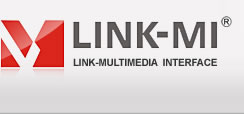The HDMI Forum, the nonprofit body that oversees the HDMI specification, recently announced version 2.0. There were numerous changes, not least support for higher frame rates than are possible with the current 1.4 specification.
Do you need to upgrade? Will your cables still work? What does this mean for the future of TVs? Do you care? Answers for all these questions (except maybe the last one) below...
First, here's where we are now. The until-now most recent version of the HDMI specification was version 1.4. It specified a number of things, like 4,096x2,160-pixel resolution up to 24 frames per second, or 3,820x2,160 up to 30fps. If you've bought any gear with an HDMI connector in the past few years, it's probably version 1.4. It carried over all the features and support from previous versions, plus added 3D, Audio Return Channel, and so on.
2.0 for 4K
With the TV industry moving inexorably toward Ultra HD "4K," it was clear there needed to be more bandwidth in the connection to handle the future's higher resolutions and frame rates. On that front, HDMI 2.0 delivers, supporting "4K" (2160p by the Forum's explanation) up to 60fps. This allows for full-resolution 4K 3D, along with higher-frame-rate 2D content, like (potentially) home videos and computer games (PC, not PS4/Xbox One). Since almost all movies are shot at 24fps, this increase is less important for feature films or scripted TV shows.
Check out What is refresh rate? for more on refresh and frame rates.
All about the bandwidth
The most important thing to understand about HDMI 2.0 is the increase of the size of the "pipe" transmitting data from the source (like a future native 4K Blu-ray player or PC) to display. This makes possible the increased frame rates at high resolutions. It also allows even more interesting lower-resolution images. For example, HDMI 2.0 supports dual video streams, so you can get two full HD shows on the same screen at the same time. Seem weird? Well, Samsung and LG already have versions of this either in current or future displays, like MultiView on Samsung's KN55S9C OLED TV. So you can watch "Dancing with the Stars" reruns on Netflix while your spouse frags noobs in "Call of Duty 9."
There's also support for a 21:9 aspect ratio (basically 2.35:1), which is interesting, but not of much practical value yet. There are only a handful of native 21:9 displays (a few TVs like the discontinuedVizio CinemaWide, and some high-end projectors). Yes, many BD movies are 2.35:1, but these are really just 2.35 in a 1.78:1 window.
Software update?
There's some confusion right now as to whether HDMI 1.4 products (like all current Ultra HD TVs) can be upgraded via a simple downloaded firmware update. Sony is saying its products can do this, but HDMI.org says that's not universal. From HDMI.org: "Currently, there are no provisions for doing [a 1.x to 2.0] upgrade. Because of the new enhanced feature set, any such conversion would require hardwareand/or firmware upgrades. If there are such conversions, it would come from the manufacturer. Please check with them directly." Emphasis mine.
Since the specification and bandwidth are based on the HDMI hardware chips inside the products, getting these chips to do more than they were initially designed to seems a challenge, and that's likely why HDMI Licensing is hedging. The group is not saying it isn't possible, just deferring to the manufacturers.
For more info, check out HDMI 2.0 Upgrade Path: Where do the manufacturers stand?
Will I need a new cable?
NO! Well, probably not. Here is the exact quote from HDMI.org: "Version 2.0 of the HDMI Specification does not define new cables or new connectors. Current High Speed cables (category 2 cables) are capable of carrying the increased bandwidth." Emphasis mine. Here's another direct quote: "HDMI 2.0, which is backwards-compatible with earlier versions of the HDMI specifications..."
Version 2.0 (like 1.4 before it) is entirely a hardware change. It is not a cable change. You can expect cable manufacturers to proclaim that you need expensive new "Version 2.0 cables" but this is untrue. Your current High Speed cables should work just fine.
I hedge with "should" as if the cable isn't fully up to the High Speed spec, it might not work. In this case, you might get dropouts or sparkles (as discussed in this article). If you do, a different but not more expensive HDMI cable should work just fine.
It's worth mentioning, again, that 4K HDMI cables are nonsense.
When?
Don't expect to see HDMI 2.0 products this Christmas. At least not in any serious way. The spec comes first, then the chip makers design and build the chips, then TV, Blu-ray, and receiver manufacturers build these chips into TVs, Blu-ray players, and receivers. It's safe to assume that at least one of these stages is already well in progress, but that should result in 2014 models (think CES announcements).Panasonic, on the other hand, is already promising HDMI 2.0 compliance for one of its TVs.
And in reality, you shouldn't really worry about HDMI 2.0 at all (hmm, I guess I can answer that question from the intro). No doubt, HDMI 2.0 is very cool, and frees up a lot of elbow room to expand the current TV world. But until there are actual products you want to buy that have HDMI 2.0 in them, you shouldn't worry about it. Even then, your current HDMI 1.4 gear will interface with any new 2.0 gear just fine.
If, in a few years, you buy a 4K OLED TV, and want to send it 2160/60p from your 4K Blu-ray player, then yes, you'll need to upgrade your receiver to one that can pass HDMI 2.0. |

